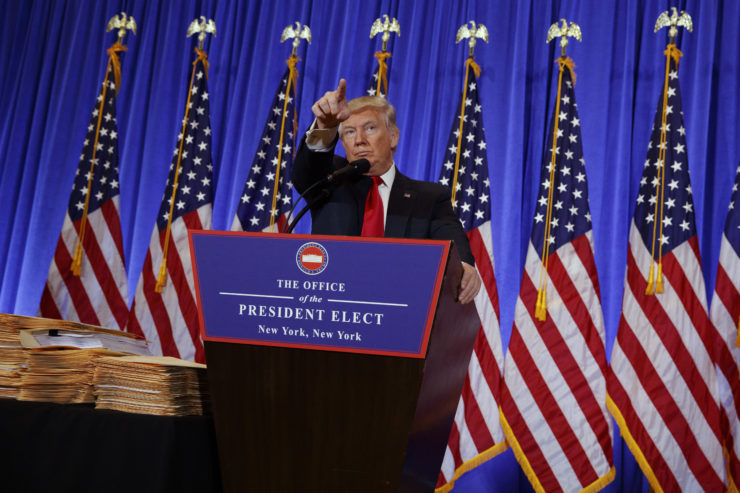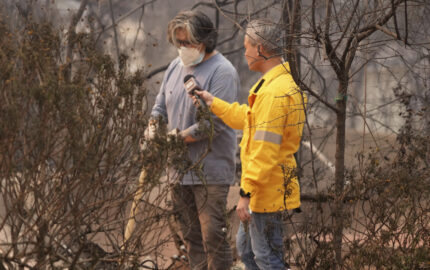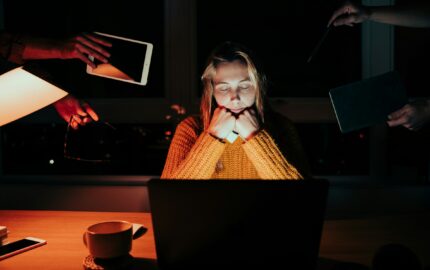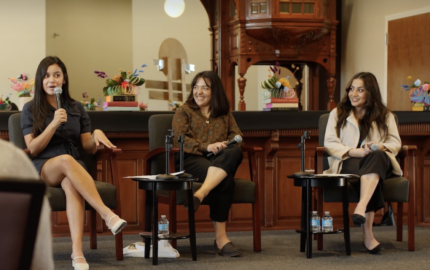A discussion of journalistic ethics is supposed to involve journalism, so maybe I’m on thin ice writing about BuzzFeed’s decision to publish the dossier about Donald Trump – because that decision had nothing to do with journalism.
How do we know? BuzzFeed told us in its explanation for why it did what it did. This is how it introduced its readers to the report:
“A dossier making explosive — but unverified — allegations that the Russian government has been ‘cultivating, supporting and assisting’ President-elect Donald Trump for years and gained compromising information about him has been circulating among elected officials, intelligence agents, and journalists for weeks.”
When your first sentence includes the words “explosive” and “unverified” and “allegations,” that’s a strong clue you should not publish. Even telling your readers that a potentially damaging but unverified report about the incoming president exists raises ethical concerns and has to be done with extreme care, if at all. To publish the actual report is a violation of every basic standard imaginable.
It gets worse. From BuzzFeed:
“The dossier, which is a collection of memos written over a period of months, includes specific, unverified, and potentially unverifiable allegations of contact between Trump aides and Russian operatives, and graphic claims of sexual acts documented by the Russians. BuzzFeed News reporters in the U.S. and Europe have been investigating various alleged facts in the dossier but have not verified or falsified them.”
BuzzFeed—rightly—told its team of investigative reporters, on two continents, to determine if the allegations could be verified. That’s journalism, looking under every rock in a search for truth. But they came up empty – and still they decided to publish.
BuzzFeed knew the report was “prepared for political opponents of Trump” and was “not just unconfirmed: It includes some clear errors.”
As bad as all of that is, here’s the kicker:
“Now BuzzFeed News is publishing the full document so that Americans can make up their own minds about allegations about the president-elect that have circulated at the highest levels of the U.S. government.”
When your first sentence includes the words “explosive” and “unverified” and “allegations,” that’s a strong clue you should not publish
That’s the height of irresponsibility. Readers have access to so much information in the Internet age they are on the verge of being overwhelmed, particularly considering that so much of it is misleading or just made up. It’s getting harder for everyone to weed through truth and fiction. Journalists are supposed to help readers navigate this increasingly treacherous path. Instead, BuzzFeed added to the confusion.
Journalists are paid to uncover or discover truth and present their findings to the public. It is not the public’s job to “make up their own minds” about basic fact. Facts are not subject to popular opinion. The public gets to ignore those facts or use them as a call to arms or interpret those facts in any way they decide. That’s democracy.
The journalist’s role becomes more important by the day as a seemingly unprecedented level of hyper-partisanship continues to root itself deeper into our democracy, making it easier for more of us to glom onto anything that confirms what we already want to believe, especially if it is something salacious about a political opponent. We commit a public disservice when we treat unverified facts as fact.
More From Issac Bailey
In the age of Trump—a man who breezily tells falsehoods and continues telling them even after being called out—it will be tempting to believe an ugly claim made against him, or justify any decision to report unsubstantiated facts that might be true because of what we know about the incoming-president’s character. We should expect that of partisan hacks, not from real journalists whose level of skepticism at a time like this should be heightened, no matter the claims, no matter who is making them, even our intelligence agencies.
I’m no fan of Trump. But I won’t cheer when a media outlet decides to sully his name – and our industry’s reputation – this way.
I recently argued that the media made a mistake following the lead of WikiLeaks during the 2016 presidential election cycle, which deepened an already-large transparency gap between the presidential nominees. The more we learn about behind-the-scenes decisions made by major political and legal actors, the more I’m convinced we got it wrong.
But that decision was defensible on a journalistic level and stemmed from a tried-and-true journalistic rationale that has served us well in most cases. It was a close call. What BuzzFeed did was not.



